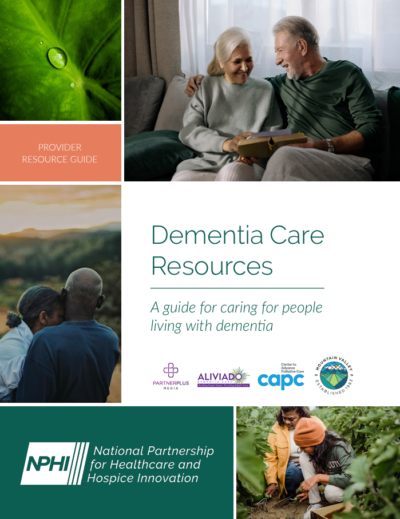Efficient Dementia Treatment Approaches for a Better Lifestyle
In the world of dementia treatment, the implementation of effective methods is vital for boosting the high quality of life for both individuals impacted by the illness and their caretakers. Comprehending the unique stages of mental deterioration allows for tailored treatments that deal with the developing needs of patients-- from promoting cognitive interaction in the early stages to guaranteeing self-respect in late-stage treatment.
Comprehending Mental Deterioration Phases

In the beginning, people may experience light memory loss and difficulty with acquainted jobs. Treatment strategies must focus on preserving independence and supplying cognitive excitement. The center stage is identified by raised confusion, problem identifying loved ones, and damaged judgment. Throughout this stage, caregivers ought to implement organized regimens and guarantee a secure environment. In the late stage, people might shed the capability to require and interact support with daily activities. Right here, thoughtful treatment is important, emphasizing convenience and dignity.
Recognizing these phases allows caregivers to adjust their techniques and supply assistance that aligns with the individual's current needs, inevitably promoting far better monitoring of the condition and boosting the general caregiving experience. Recognizing dementia stages is therefore a fundamental element of effective mental deterioration care.
Interaction Strategies
Effective interaction is a vital part of dementia treatment, particularly as the disease advances through its numerous stages. As cognitive capabilities decrease, it comes to be crucial to adapt communication methods to satisfy the requirements of people with dementia. Using clear, straightforward language is important; caregivers need to prevent intricate sentences and jargon, deciding instead for uncomplicated, succinct expressions.
Non-verbal communication plays an equally substantial function. Face expressions, motions, and intonation can share warmth and understanding, commonly enhancing spoken messages. Keeping eye contact and an open pose fosters a feeling of link and safety and security, encouraging people with mental deterioration to engage even more totally in conversations.
It is likewise useful to be individual and allow adequate time for reactions. Individuals might need additional time to procedure info and formulate their ideas. Duplicating or rephrasing concerns may be essential if understanding appears lacking.
Lastly, focusing on the individual's passions and individual background can promote much more meaningful communications. Participating in acquainted topics can evoke favorable memories and feelings, better improving the interaction experience (memory care facility charlotte). By using these strategies, caretakers can considerably improve the quality of interactions, advertising dignity and regard for individuals living with dementia
Developing a Safe Setting
Creating a safe setting for people with mental deterioration is crucial to advertising their well-being and independence. A properly designed room can considerably reduce the dangers of crashes and enhance the top quality of life for those influenced by this problem.
Illumination plays a vital function as well; making use of all-natural light any place feasible and including evening lights can assist individuals navigate their environments safely. Additionally, identifying rooms and essential things can assist memory and orientation, lowering complication and stress and anxiety.
It is likewise vital to create a familiar environment by customizing the area with pictures or treasured things, which can stimulate favorable memories and a feeling visit here of belonging.
Incorporating furniture that is both comfy and functional adds to an encouraging environment, enabling individuals to engage in day-to-day activities easily. Ultimately, a safe setting not only safeguards against physical threats but also fosters a complacency, which is essential for the emotional well-being of those living with dementia.
Involving Routines and tasks
Engaging activities and structured routines are important components in the care of individuals with dementia, as they advertise cognitive feature, psychological security, and social communication. These tasks ought to be customized to the person's interests, capacities, and stage of cognitive decline. charlotte care home. Simple, recurring jobs such as horticulture, arts and crafts, or cooking can give significant engagement, allowing individuals to use their skills while fostering a sense of accomplishment
Establishing a daily regimen helps produce a predictable environment, which can decrease stress and anxiety and confusion. This structure can include assigned times for meals, activities, and rest, ensuring a balanced technique to life. Including social interactions into these routines, such as group tasks or going to family members, further boosts emotional well-being and fights sensations of seclusion.
In addition, physical tasks, such as dancing or strolling, not only promote physical wellness but also boost psychological interaction. Urging participation in area events or support teams can offer added chances for socializing. In general, the integration of structured routines and appealing activities is vital in boosting the top quality of life for people with dementia, fostering freedom and dignity while resolving their distinct demands.
Supporting Caretaker Health
Caring for people with dementia can be a demanding and mentally tiring experience, making it essential to prioritize the wellness of caregivers. Caretakers usually face high levels of stress and anxiety, stress and anxiety, and physical fatigue, which can lead to burnout if not dealt with appropriately. To support their health, it is necessary to implement a complex approach.
First, providing caretakers with accessibility to education and learning and read this resources can equip them with strategies to manage daily challenges. Support teams, both in-person and online, supply a platform for sharing experiences, fostering a sense of area, and lowering sensations of isolation. Additionally, break treatment solutions make it possible for caretakers to take essential breaks, enabling them time to reenergize and participate in to their very own health needs.
In addition, motivating caregivers to engage in self-care methods-- such as routine exercise, healthy and balanced consuming, and mindfulness-- can dramatically boost their resilience. Advertising open communication concerning their feelings and obstacles with family members or professionals additionally helps ease psychological worries.
Verdict
In final thought, reliable mental deterioration treatment techniques include a comprehensive understanding of the illness's phases, the application of clear interaction strategies, the establishment of a risk-free atmosphere, and the promotion of organized regimens and appealing tasks. Furthermore, prioritizing the health of caretakers is vital to sustaining top quality treatment. By integrating these techniques, the general high quality of life for people with dementia can be substantially boosted, fostering an anchor encouraging environment that advertises dignity and emotional health.
In the realm of mental deterioration care, the application of efficient techniques is vital for enhancing the top quality of life for both individuals influenced by the condition and their caregivers. By utilizing these techniques, caregivers can dramatically boost the high quality of interactions, advertising dignity and regard for people living with mental deterioration.

Caring for people with mental deterioration can be a requiring and psychologically exhausting experience, making it necessary to focus on the health of caretakers.
Comments on “Specialist Memory Care Charlotte: Enhancing Lifestyle for Those with Memory Loss”